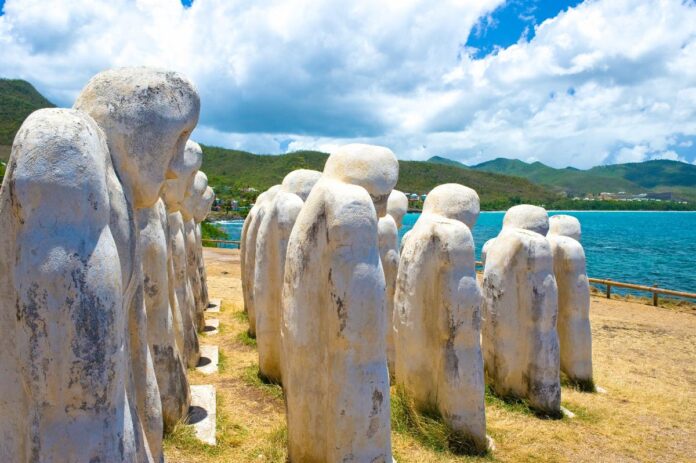FORT-DE-FRANCE, Martinique (February 23, 2025) – The Caribbean island of Martinique is celebrating Black History through the lens of its unique identity and history, which have been impacted deeply by the actions and contribution of significant Black figures.
Leading the commemoration, the Martinique Tourism Authority has been leveraging the month of February as an opportunity not only for reflection of the island’s own history, but also its connections to the broader French Caribbean and the African diaspora.
“The history of Martinique is filled with pages of stories of Black men and women who fought against the oppression, injustice and bondage they witnessed all around them. Many of them made unimaginable sacrifices to bring about changes they did not live to see. As Martinicans today, we are proud to honor their faith, resilience, creativity, and vision that made us the people we are today,” said Muriel Wiltord, Director of the Americas of the Martinique Tourism Authority.
Noting that from poetry and literature to political thought and artistic expression, the contributions of Martinique and the wider Francophone Caribbean to Black history deserve greater global recognition, Wiltord stated that during Black History Month, the Martinique Tourism Authority has been spotlighting across social media some of the individuals who have shaped the island’s identity.
A Legacy of Black Excellence
Martinique has been home to some of the most influential voices in Black thought and cultural expression. Aimé Césaire, poet, playwright, and politician, was one of the founders of the Négritude movement, which sought to empower Black identity and resist colonial oppression. His works continue to inspire and define the struggles and triumphs of Black people worldwide. Today, his legacy lives on through the Aimé Césaire International Airport in Martinique and a commemorative plaque at the Panthéon in Paris.
Another towering figure is Frantz Fanon, whose revolutionary writings on decolonization and race, including Black Skin, White Masks and The Wretched of the Earth, have influenced liberation movements across Africa and the Caribbean. This year marks the centenary of the birth of Frantz Fanon, and “Année Frantz Fanon” is being commemorated with various events and activities, including an international symposium scheduled for later this year. His work remains a cornerstone for discussions on Black consciousness and resistance.
The literary and philosophical contributions of Édouard Glissant further enriched the cultural and historical landscape of Martinique, advancing ideas of créolité and cultural diversity that continue to shape Caribbean identity today.
A Shared History of Struggle and Triumph
The struggles of Martinique are deeply intertwined with those of the Caribbean, whose resistance against oppression ignited the fight for freedom throughout the region. This shared history unites the people of the Caribbean, Africa and the diaspora, reinforcing the importance of recognizing and honoring these connections.
“As we reflect on the incredible legacy of our forebears, we must continue to educate and enlighten our younger generations so that they, too, will honor the rich, complex history of Black identity and achievement and our unique Martiniqualité, which continues to shape our island and the world,” stated Wiltord.
PHOTO CAPTION: The Anse Cafard Slave Memorial stands as a solemn tribute to the enslaved lives lost in the 1830 shipwreck off Martinique’s coast, honoring their resilience and the region’s enduring history.



